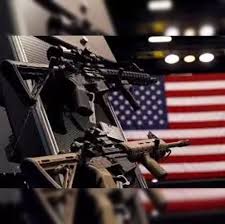
Breaking News
 President Ibrahim Traoré's Bold Speech to the IMF Shocks the West (Publisher Recommended)
President Ibrahim Traoré's Bold Speech to the IMF Shocks the West (Publisher Recommended)
 America Descends Into CHAOS - Are You Prepared?
America Descends Into CHAOS - Are You Prepared?
 Minnesota Shooter's Wife Detained with Weapon, Ammunition, Cash, Passports
Minnesota Shooter's Wife Detained with Weapon, Ammunition, Cash, Passports
 DARPA sets new records for sending power wirelessly
DARPA sets new records for sending power wirelessly
Top Tech News
 "We're Not Ready for AI Simulation" | Official Preview
"We're Not Ready for AI Simulation" | Official Preview
 $839 Ecoworthy Version 3: Best Value 48V Battery for 2025?
$839 Ecoworthy Version 3: Best Value 48V Battery for 2025?
 Feature-packed portable learning lab for makers puts AI within reach
Feature-packed portable learning lab for makers puts AI within reach
 Hydrogen Gas Blend Will Reduce Power Plant's Emissions by 75% - as it Helps Power 6 States
Hydrogen Gas Blend Will Reduce Power Plant's Emissions by 75% - as it Helps Power 6 States
 The Rise & Fall of Dome Houses: Buckminster Fuller's Geodesic Domes & Dymaxion
The Rise & Fall of Dome Houses: Buckminster Fuller's Geodesic Domes & Dymaxion
 New AI data centers will use the same electricity as 2 million homes
New AI data centers will use the same electricity as 2 million homes
 Is All of This Self-Monitoring Making Us Paranoid?
Is All of This Self-Monitoring Making Us Paranoid?
 Cavorite X7 makes history with first fan-in-wing transition flight
Cavorite X7 makes history with first fan-in-wing transition flight
 Laser-powered fusion experiment more than doubles its power output
Laser-powered fusion experiment more than doubles its power output
Supreme Court: US Gun Makers Not Liable For Cartel Violence

Mexico originally filed the suit in 2021, arguing that U.S. gun companies were responsible for the weapons that fueled cartel violence. Mexico received support in its lawsuit from American gun control advocacy groups such as Everytown and March for our Lives Action Fund.
The Supreme Court ruling, written by Justice Elena Kagan, found that the manufacturer's alleged failure to exercise "reasonable care" does not meet the standard necessary to be found liable for "aiding and abetting" the sale of illegal firearms in Mexico.
Mexico had asked the court for $10 billion in damages and additional court-imposed injunctive relief in the form of restrictions on manufacturers. According to a lawyer who spoke to RCP, siding with Mexico on the injunctive relief "would have likely severely prohibited the distribution of the manufacturer's products" within the United States.
A federal district court judge initially ruled that the Protection of Lawful Commerce in Arms Act protected the gun manufacturers from the suit. In 2024, the First Circuit Court of Appeals revitalized the lawsuit. In response, gun manufacturer Smith & Wesson brought the case to the Supreme Court.
The PLCAA, signed into law in 2005 by President George W. Bush, shields gun manufacturers and dealers from liability when crimes are committed with their products. The law includes exceptions which Mexico's lawyers sought to invoke.
The original suit by Mexico, which named multiple U.S.-based gun manufacturers as defendants, claimed that Mexicans "have been victimized by a deadly flood of military-style and other particularly lethal guns that flows from the U.S. across the border." It also argued that U.S. companies were negligent in their sales practices, claiming that the gun companies "are not accidental or unintentional players in this tragedy; they are deliberate and willing participants, reaping profits from the criminal market they knowingly supply."
In response, lawyers for Smith & Wesson argued in a filing that the lawsuit "faults the defendants for producing common firearms" and for "failing to restrict the purchase of firearms by regular citizens." They made the case that "aiding and abetting criminal activity must involve something more than making products generally." Ultimately, the Supreme Court agreed with this reasoning.

 How are holograms possible?
How are holograms possible?


